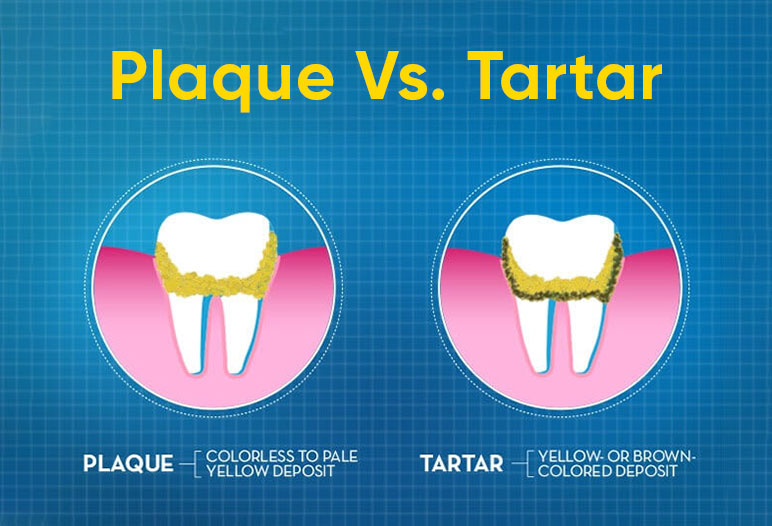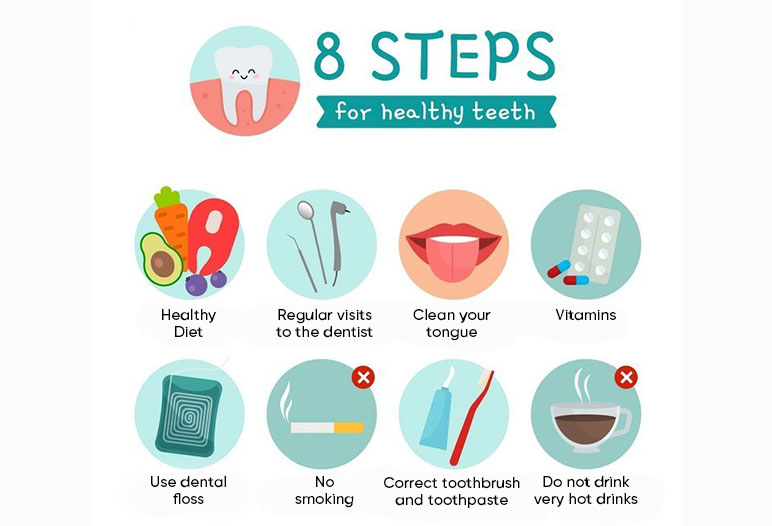Yellow tartar teeth are a common concern for many individuals who strive to maintain their oral health. The visibility of this yellow substance can be disheartening, leading to questions about its origins, implications, and methods for removal. Understanding the nuances of yellow tartar teeth goes beyond just aesthetics; it encompasses the broader scope of dental hygiene, the effects on oral health, and effective strategies for prevention.
Yellow tartar teeth
When we speak of yellow tartar teeth, we are addressing a condition where hardened plaque—often tinted yellow—accumulates on the surface of the teeth. Tartar is not merely an unsightly blemish; it’s a significant indicator of insufficient oral hygiene practices. When food particles and bacteria mix in the mouth, they form a sticky film known as plaque. Over time, without proper brushing and flossing, this plaque calcifies into tartar, becoming much more challenging to remove.
The presence of yellow tartar on teeth often suggests that one may not be implementing effective oral care routines. Many people mistakenly believe that brushing alone is sufficient; however, flossing plays an essential role in maintaining overall oral health. Without these practices, plaque can harden into stubborn tartar that clings tenaciously to tooth enamel.
Additionally, yellow tartar teeth serve as a warning sign of potential dental issues. It’s crucial for individuals to recognize that while the appearance of yellowed teeth can be cosmetically displeasing, it may also signal deeper problems such as gum disease or cavities. Hence, understanding how to combat this accumulation becomes paramount in preserving one’s oral health.
Causes of yellow tartar
One of the primary causes of yellow tartar build-up is poor dental hygiene. Regular brushing and flossing help eliminate food particles and bacterial growth, but if these practices are neglected, plaque will inevitably form and eventually harden into tartar.
Diet also plays a significant role in tartar formation. Consuming sugary foods and beverages can create an ideal environment for bacteria to thrive, exacerbating the problem. Particularly, sticky foods that cling to teeth tend to promote tartar formation.
Another contributing factor is smoking and tobacco use, which not only stains teeth but also affects the overall health of gums and oral tissues. This leads to increased susceptibility to tartar build-up.

Understanding dental hygiene
Understanding the components of good dental hygiene is essential in preventing yellow tartar teeth. Proper techniques for brushing and flossing, along with regular dental check-ups, play a vital role. Dentists recommend using fluoride toothpaste and ensuring that you brush for at least two minutes twice daily. Flossing helps reach areas between teeth that toothbrushes often miss, thereby reducing plaque build-up.
Moreover, limiting sugary snacks and sodas can significantly lessen the chances of tartar accumulation. Drinking water frequently can also help rinse away food particles and acids in the mouth, further aiding in plaque control.
Does tartar make your teeth yellow?
Yes, tartar contributes substantially to the yellowing of teeth. As tartar builds up, it can lead to discoloration that significantly alters the aesthetic appeal of one’s smile. One might wonder, does tartar make your teeth yellow? The answer lies in the nature of the compounds that form tartar itself.
Tartar is primarily comprised of minerals from saliva, food debris, and bacteria. When the tartar remains on teeth, it can attract stains from food and drinks, such as coffee, tea, and red wine, further compounding the yellowing effect. Moreover, the rough texture of tartar provides a perfect surface for staining agents to adhere to, making it imperative to address tartar before it leads to more severe cosmetic issues.
In addition, lack of professional dental cleanings allows tartar to flourish unchecked. Regular visits to the dentist not only aid in removing yellow tartar but also provide guidance on improving oral hygiene practices, ultimately resulting in whiter and healthier teeth.
The importance of professional cleanings
It’s essential to acknowledge that home care, while critical, isn’t always enough to manage tartar effectively. Routine dental cleanings are necessary to remove hardened tartar that cannot be addressed by brushing alone. Dentists employ specialized tools to gently scale away tartar, restoring the teeth’s shine and helping to prevent future buildup.
Frequent visits to the dentist can also highlight other underlying issues that could contribute to tooth discoloration. Early intervention can save time, money, and discomfort in tackling dental problems down the line.
Relationship between diet and tartar
The link between dietary choices and tartar formation cannot be overstated. Foods high in sugars and acids can significantly increase tartar build-up. When consuming sugary snacks, bacteria in the mouth feed on these sugars, producing acids that attack tooth enamel. Over time, this process can lead to the formation of plaque, which, if left untreated, hardens into tartar.
Conversely, incorporating a diet rich in fruits and vegetables can actually promote better oral health. Crunchy produce like apples and carrots can act as natural scrubbers for teeth, helping to dislodge food particles and reduce plaque formation.
How to remove yellow tartar from teeth
Removing yellow tartar from teeth requires a combination of professional dental care and diligent home routines. While it is impossible to eliminate tartar entirely at home, certain practices can significantly help in managing and reducing its accumulation.
Professional dental cleaning
The most effective method to remove yellow tartar is professional dental cleaning. Dentists utilize specialized tools to safely scale the teeth and remove any build-up. The procedure is typically painless and can significantly improve both oral health and aesthetics. Post-cleaning, patients often notice an immediate difference in the brightness of their smile, motivating them to take better care of their teeth moving forward.
Here is our dental cleaning pricing at Saigon Center Dental Clinic:
| TEETH CLEANING | DENTAL COST (USD) | DISCOUNT PRICE (USD) |
| Scaling | 40 – 80 | |
| Deep cleaning | 120 – 160 |
Home care practices
Incorporating sound home care practices is equally important. Brushing at least twice a day with a fluoride toothpaste and flossing daily can dramatically reduce the amount of plaque that turns into tartar. Additionally, utilizing mouthwash designed to kill bacteria can further assist in keeping plaque at bay.
Some people opt for electric toothbrushes, which have been shown to be more effective at plaque removal compared to manual brushing. In tandem with regular flossing, these devices can provide thorough cleansing and significantly lower the risk of tartar formation.

Diet considerations
Dietary adjustments can play a significant role in managing yellow tartar on teeth. Reducing sugar intake and avoiding sticky foods limits the amount of plaque-forming substances present in the mouth. Beverages like water and herbal teas can help wash away food particles, while crunchy vegetables can stimulate saliva production, which naturally cleanses the mouth.
Moreover, chewing sugar-free gum after meals can help in decreasing tartar formation. Saliva acts as a natural cleanser, neutralizing acids produced by bacteria in the mouth.
How to get yellow tartar off teeth
To truly understand how to get yellow tartar off teeth, it is essential to adopt a multi-faceted approach involving professional interventions, consistent home care, and lifestyle adjustments.
Seeking professional assistance
As previously mentioned, seeking a professional dental cleaning is the most effective solution for getting rid of yellow tartar. Dentists possess the skills and tools necessary to tackle even the toughest tartar deposits. Regular appointments ensure that any tartar buildup is identified early, preventing escalation into more serious issues.
Implementing a robust oral hygiene routine
Maintaining a consistent oral hygiene routine is vital. In addition to brushing and flossing, using tartar-control toothpaste can help in reducing plaque accumulation. Rinsing with an antiseptic mouthwash can further inhibit bacterial growth, thus lessening the chance of tartar forming.
Additionally, consider incorporating dental tools like interdental brushes or soft picks, which can help target hard-to-reach areas that traditional floss might miss. These tools enhance overall cleaning effectiveness, targeting crevices where tartar tends to accumulate.
Yellow on teeth is it plaque
In many cases, yellow on teeth can indeed indicate the presence of plaque. If left unchecked, plaque transforms into tartar, leading to the yellowing effect. Understanding the relationship between plaque and tartar is fundamental for effective oral care.
Plaque starts as a soft deposit, easily removable through regular brushing and flossing. However, when it remains undisturbed for too long, it hardens and becomes tartar, which cannot be removed without professional care. This progression highlights the importance of timely dental hygiene practices.
Individuals should keep an eye out for several warning signs indicating the presence of plaque or tartar. Symptoms may include bad breath, swollen or bleeding gums, and a feeling of roughness on the teeth. Recognizing these signs early can prompt timely action to mitigate further complications.
Conclusion
In summary, yellow tartar teeth are not just a cosmetic issue; they represent a significant challenge in the realm of oral health. By understanding the formation process, recognizing the effects of tartar on the teeth, and employing effective removal strategies, individuals can reclaim their oral health.
With a commitment to regular dental visits, proper dental hygiene, and conscious dietary choices, those concerned about yellow tartar on teeth can regain their confidence and achieve a brighter, healthier smile. Embracing these practices is key to avoiding the pitfalls associated with tartar accumulation, ultimately leading to a lifetime of good oral health.



SAIGON CENTER DENTAL CLINIC
Best dentist in Vietnam
Saigon Center Dental Clinic is proud to be one of the most prestigious dental clinics in Ho Chi Minh City with a variety of services: Single dental implant, Full jaw dental implant (especially All On 4, All on 6, and Zygoma Implant), Cosmetic porcelain crowns, Porcelain veneers, Braces, Clear braces, Tooth fillings, Wisdom tooth extraction, Treatment of toothache...
SAIGON DENTAL IMPLANTS CENTER
Best dentist in Vietnam
Saigon Implant Center - Dental Clinic utilizes the latest technology for specialized treatment in the field of Single implant, full jaw implants, All on 4 implants, All on 6 implants, Zygoma implant....